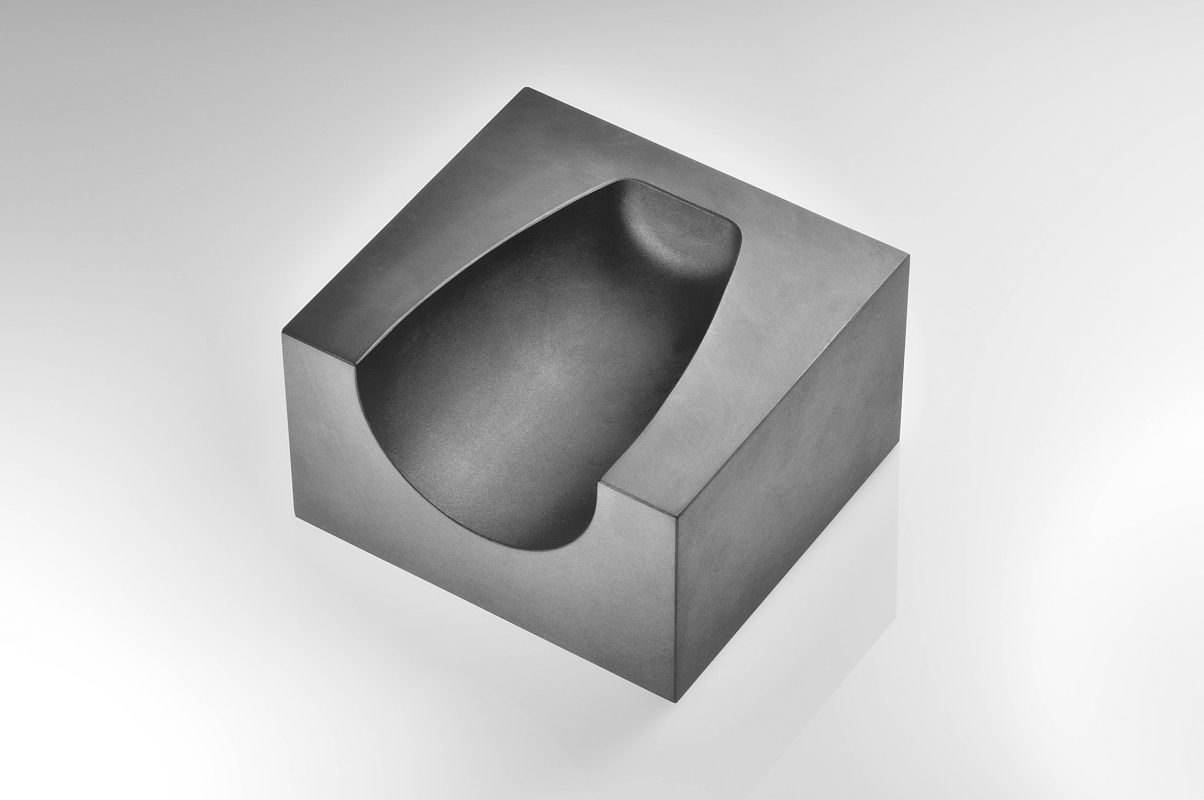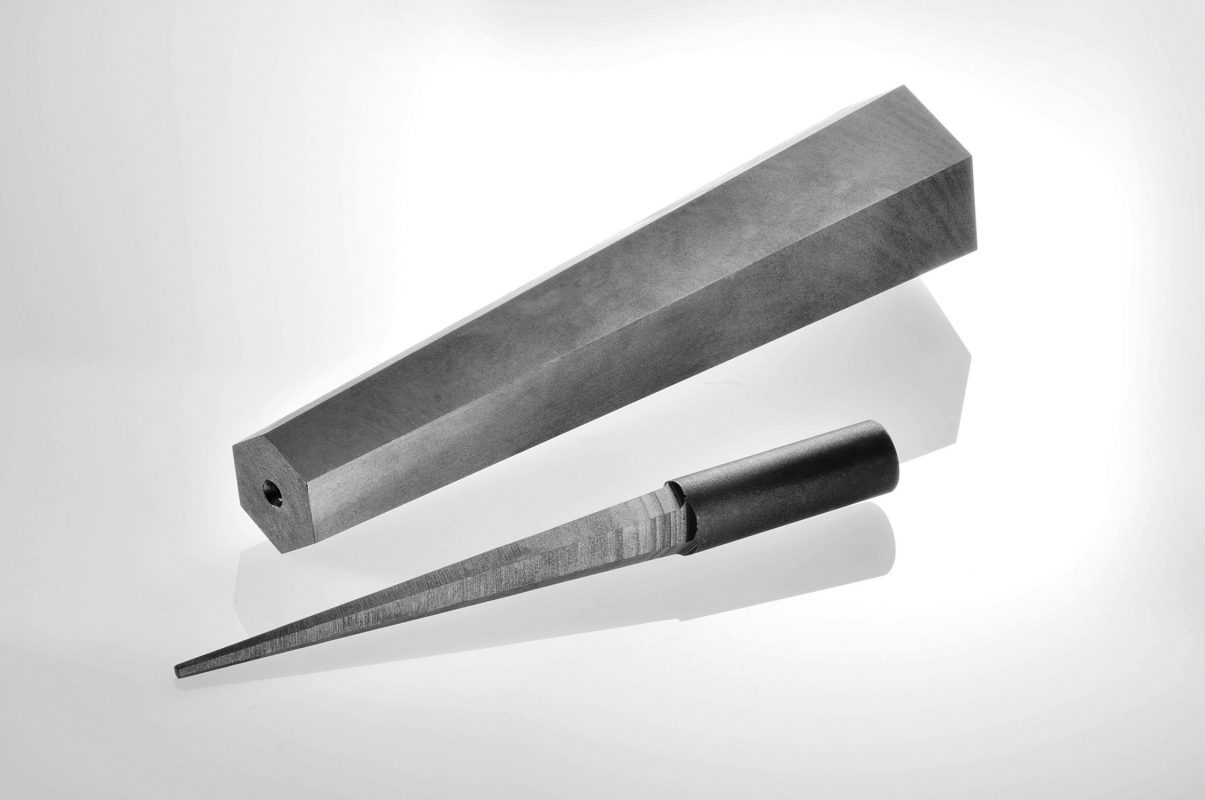For the production of graphite moldings, raw materials such as petroleum cokes, pitch cokes, carbon blacks are mixed with thermoplastic binders. These are pressed into so-called green bodies, usually in an extrusion process, which are then subjected to sintering at about 1,000 – 1,200°C under vacuum.
This carbonization process ensures an open pore structure by decomposing the binder into volatile components. The subsequent graphitization takes place at 3,000°C and ensures a conversion of the amorphous carbon into polycrystalline graphite.
In order to meet the highest material requirements, RMC Remacon offers not only extruded graphite but also molded parts made of isostatically pressed graphite (ISO graphite). These have significantly better properties in terms of material strength, higher volume density and less porosity. In addition to finer-grained raw materials, a modified pressing process is used during production, which ensures greater strength under high pressure.


